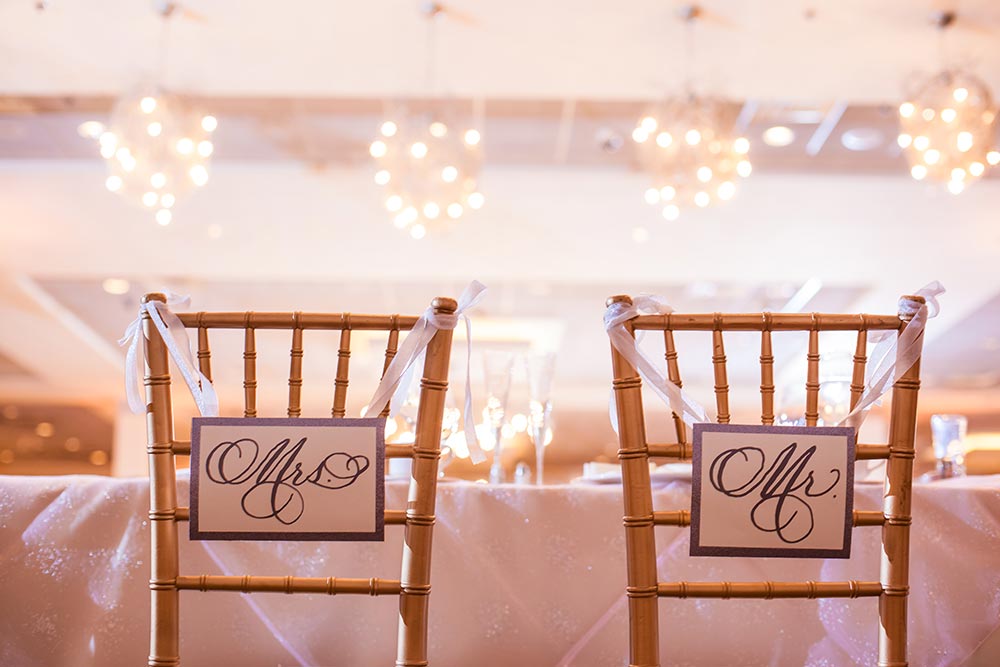 The traditional marriage ceremony has undergone many changes over the years. What was once a very strictly measured and regimented ceremony has become more fluid and responsive to the needs and desires of each individual couple. Today’s bride and groom are no longer necessarily restricted to those traditional standardized vows, and are opting to write, and share, their own personalized wedding vows.
The traditional marriage ceremony has undergone many changes over the years. What was once a very strictly measured and regimented ceremony has become more fluid and responsive to the needs and desires of each individual couple. Today’s bride and groom are no longer necessarily restricted to those traditional standardized vows, and are opting to write, and share, their own personalized wedding vows.
It is a trend that has gained momentum over the years, and has helped to shape the modern wedding ceremony into an even more special, and personal, experience. But writing your own wedding vows can often be more difficult than it might seem, and there are many things to consider. If you are considering writing and exchanging your own personal vows at your wedding, here are a few tips to keep in mind.
1. Check With Your House of Worship
Before you begin writing your wedding vows, it is important to confirm with your wedding ceremony officiant that personalized wedding vows are acceptable. While many houses of worship have embraced the idea of couples writing their own wedding vows, many more have not. So, the first step is to check with your church or synagogue and confirm that writing your own vows is allowed.
Also, keep in mind that if you are given the go ahead to write your own vows, your wedding officiant will likely want to review them thoroughly prior to the ceremony.
2. Take Your Time
Like so many aspects of wedding planning, the secret to writing successful wedding vows begins with starting early. The last thing you want is to rush through the process.
Begin writing your vows at least a month or more before the wedding date. Try to get a first draft finished within a couple weeks of the wedding itself, and aim for having your vows finished and approved by, at the very latest, two to three days prior to the wedding.
3. Together or Apart – Writing Your Vows
The next step is to decide if you will be writing your vows together, or separately. Each choice has its advantages. If you choose to work together, you will be able to ensure that your wedding vows compliment each other, and work in tandem to create the perfect centerpiece for your wedding.
Writing your vows together is particularly helpful if you want to make certain that you both use the similar phrases, and make the same promises to each other. That being said, many couples like to write their wedding vows separately, so that they will be a surprise on the big day. When handled well, this can create a stunningly emotional response during the wedding ceremony.
However, if you decide to write your vows separately, make a point to choose someone you both trust (a family friend or wedding officiant) who can review your vows in private, and ensure that both sets of vows are suitable. Remember, good surprises are great, bad surprises can be awkward.
4. Setting the Tone
Whether writing together or separately, before you set to work you should both agree on a tone for your wedding vows. Do you want them to reflect more traditional values? Do you want to go with something humorous but romantic, or do you want to aim for something more poetic? Before you begin writing your vows, spend some time discussing what you both want out of your vows, and set some parameters.
Keep in mind, however, that if you choose a more lighthearted approach to your wedding vows, they should still reflect the gravity and solemnity of the occasion. One or two little jokes is fine, but your wedding vows are not an opportunity to try out your stand up act. Again, when in doubt, run your vows by someone you trust who can review them impartially and tell you if you have overstepped the mark.
5. Consider Your Audience
The main attraction of personalized wedding vows is that they better represent the happy couple and their lives together. However, it is still important to consider the occasion, and the guests that have come to witness your wedding.
Avoid writing vows that are TOO personal. You don’t want your vows to be so cryptic that your wedding guests have no idea what you are talking about, and you don’t want your vows to be so personal that your guests feel like embarrassed eavesdroppers.
6. Keep It Short
Save the speeches for the reception. Your wedding vows should be kept short and sweet, no more than a minute. Concentrate on the most important points you want to make, and don’t dally too much in the presentation.
7. Practice, Practice, Practice
Finally, if you choose to write your own vows, be sure to give yourselves plenty of time to practice. Remember, you are delivering your vows live, and in front of a room full of guests.
Practice your vows out loud, and in front of a mirror. Get comfortable with what you are going to say, and how you want to say it. Where you wedding vows are concerned, practice definitely makes perfect.





